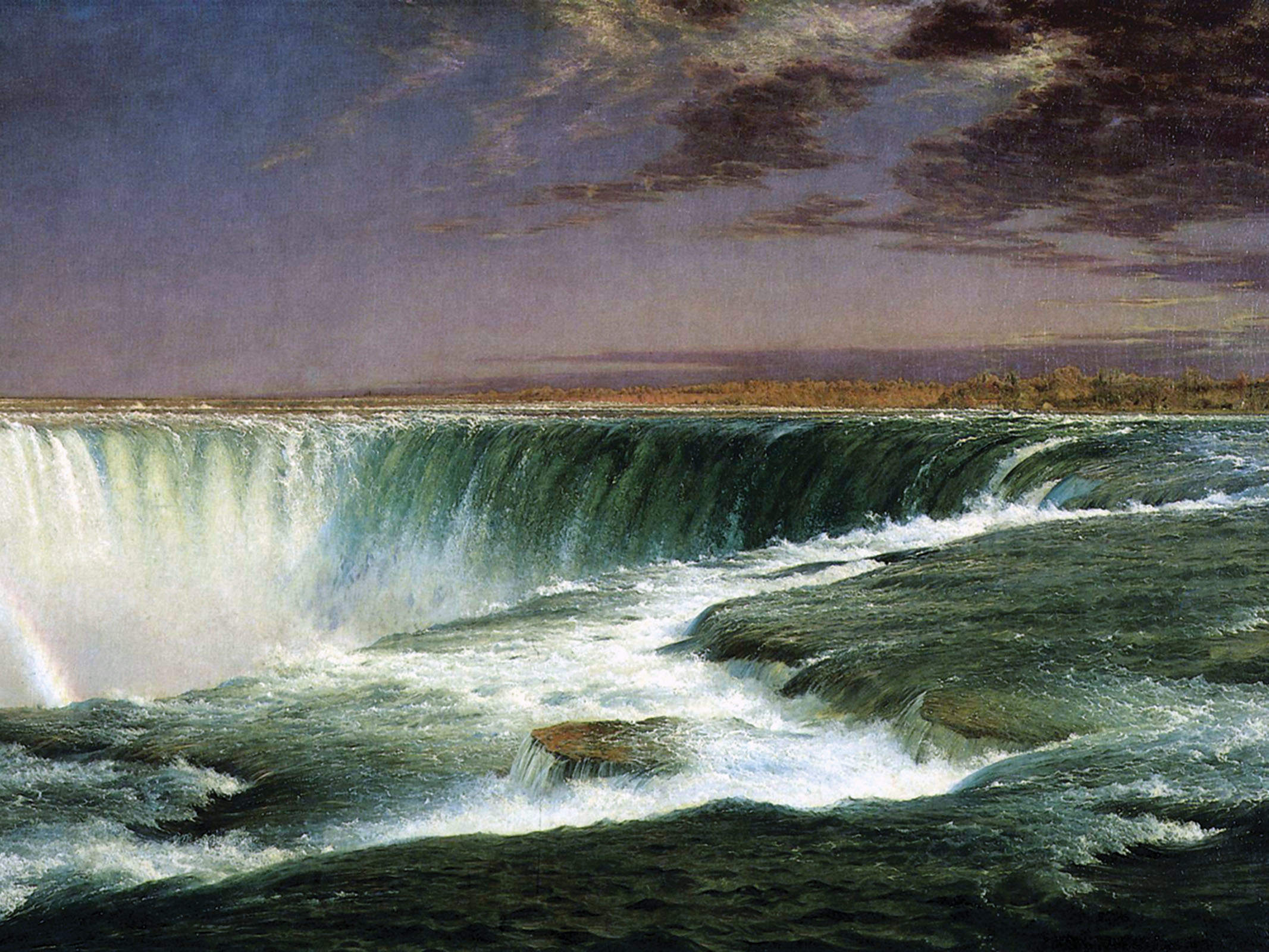
Recently, while packing for a trip to the United States, it occurred to me that I was preparing, once more, to travel to a place that no longer exists. I knew where I was going – to two cities on the eastern seaboard, to be precise – but behind the mere facts lay an entirely different country, a half-mythical land that, in Walt Whitman’s words, remained “perennial with the earth”, a continent of wonders that I had conjured up long before I actually went there, taking my cue from the work of painters such as Winslow Homer and Frederic Church, the poets Robert Frost and William Stafford and the photographer Carleton Watkins, whose pictures of Yosemite and sites along the Columbia River haunted my imagination as a teenager.
That America is gone now, for the most part. Many places are still beautiful, some are even close to wild, often because artists, writers and photographers helped to preserve them from the worst kinds of development (Walden Pond is still recognisably the place it was in Thoreau’s day, only because he wrote about it; Watkins’s images of Yosemite helped to establish it as a national park, though it also drew in tourists from all over the US, which had its own impact). Yet, even where the beauty remains, it feels managed: something is missing and that missing quality is exactly what I dreamed of as a boy in my local library, riffling through art books for the images of America that left me awed and longing to be there.
Frederic Church, in particular, captivated me with his paintings of the Niagara Falls and the land around Olana in Greenport, New York, where he made his home. As I understood it, Church, along with a number of others, was an exponent of “the American sublime” but I didn’t truly understand how meaningful this description was until I went to college and was obliged by my philosophy lecturer to read Kant.
“Whereas the beautiful is limited,” Kant writes, “the sublime is limitless, so that the mind in the presence of the sublime, attempting to imagine what it cannot, has pain in the failure but pleasure in contemplating the immensity of the attempt.” I am certain that as a callow youth I did not entirely grasp Kant’s argument but my whole self, body and soul, cries out for that mix of pain and pleasure in the face of the limitless. Such experiences are rare, however, no matter where I go, not just in the US. I know that the only reason American landscapes sometimes disappoint me is that, just a century before I was born, the great rivers and prairies and wild forests still existed. And they were sublime. Now, we rarely use this particular S-word, yet there are still places – the Sonoran Desert, say – where the more-than-beautiful stops me dead in my tracks.
Imagine what it must have been like in Frederic Church’s day. Born in 1826, he lived beyond the turn of the new century, by which time much of what had been sublime was lost to the ugly logic of manifest destiny. The land was criss-crossed with railroads and mining towns. The American bison had pretty much been hunted to extinction. The native peoples – whom some artists and landscape photographers depicted in their work, to give an unobtrusive and picturesque sense of scale – had mostly been exterminated or contained on foul reservations. True, Carleton Watkins’s photographs helped to save Yosemite but they didn’t stop graceless entrepreneurs cutting great holes in the redwoods to drive cars through.
Now, what we have left of the sublime is a few rooms’ worth of paintings and the poetry of a man who, in his generosity of vision, believed that America could be perennial with the earth. Sadly, it didn’t work out like that – but it could have done. All we needed to do was stop and look long at what was there.




